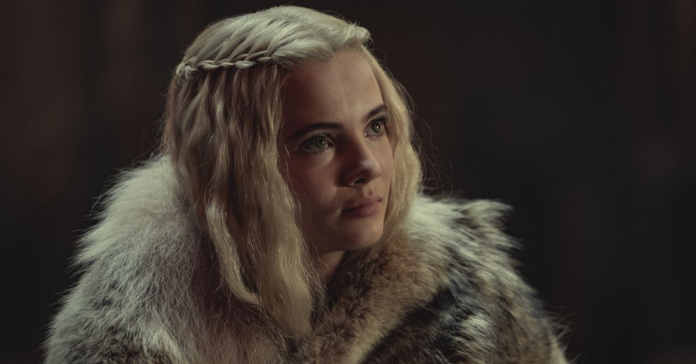The Witcher: Blood Origin is mostly about the beginnings of the Witcher universe as we know it, but that doesn’t keep it from connecting with the series’ present in some important ways. While the most obvious one may be Jaskier (Joey Batey) showing up in the miniseries’ opening, Blood Origin also has a lot to say about the family and future of the princess of Cintra.
Ciri’s (Freya Allan) role in Blood Origin may not be immediately clear, but there are a few key details, including a major change from the books, which seem like they’ll play a very important role in the main show’s upcoming third season.
[Ed. note: This story contains spoilers for The Witcher seasons 1 and 2 and The Witcher: Blood Origin.]
Blood Origin ends with a scene of Éile (Sophia Brown) receiving a prophecy from Ithlinne (Ella Schrey-Yeats), the young elf at the tavern who has visions. Ithlinne is a familiar character from the books, but one who has gotten a significant shift in the show’s version of the Witcher-verse. And, fittingly, her most famous and Ciri-centric prophecy also got an update. The new version reads as such:
The time of the spheres is upon us. Aen Seidhe lost across the skies. Cast adrift in time. Ever searching for love, lost and left behind. The Lark’s seed shall carry forth the first note of a song that ends all times. And one of her blood shall sing the last.
With this new prophecy, and the fact that it was given to Éile (who we now know to be a years-removed relative of Ciri), the show is expanding the timeline a bit to make Ciri’s eventual arrival and destiny far more complicated and long-lasting than it has seemed to be in the world of the books and games.
This direct connection also makes Ciri a descendant of the first Witcher. That change seems poised to take away from her (likely) eventual transformation into a Witcher herself, making it a piece of hereditary destiny passed down from a very great grandfather rather than a feat achieved by someone special, even if she is born with Elder Blood. Rather than expanding the world by knowing all the people and places important to its biggest moments, Blood Origin reduces the entire world to a pinhole, with just a few important characters apparently accounting for every meaningful event in history.
To make this reducing of the world extra clear, the show’s post-credits scene gives us a brief glimpse of Ciri, apparently around the time of the main Witcher series. As she plays with kids, while disguised, Avallac’h (Samuel Blenkin) watches her from the shadows. With this extremely vague tease, it seems like the series is suggesting Avallac’h will be part of the main show’s third season, while also implying that he did in fact find both a way to travel through time, and a way to discern that Ciri is the child spoken of in the prophecy.
As for the rest of the Witcher story, this also seems to cheapen the story of Lara Dorren a bit, by making her just one in a long chain of elves who led to Ciri — though she’d still be notable for marrying and having a child with a human.
In all, it’s not really clear what this take on Ciri’s prophecy actually means, or how it changes the world (except reducing it to the smallest possible pieces). But whatever implications it has for the larger world, we’re sure to find out when The Witcher season 3 arrives, and likely puts Ciri center stage.



